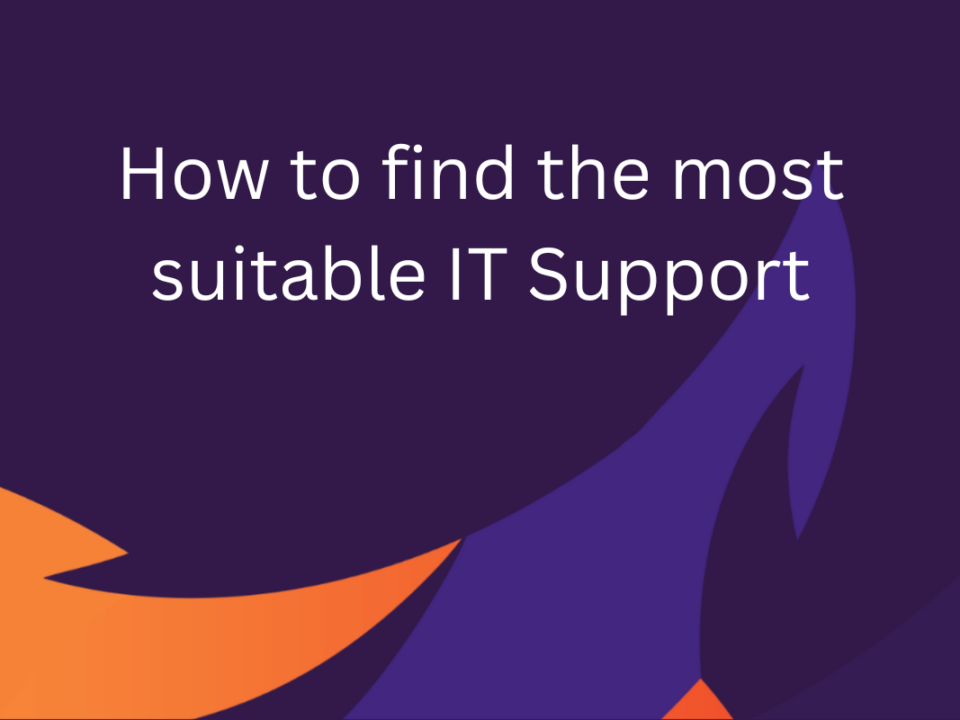Factors to consider when outsourcing IT support services
A business can choose to either employ IT staff or outsource the services. Large companies tend to hire staff to handle their IT services, but for SMEs, it is cheaper to outsource IT support services.
The most expensive mistake any business can make is to blindly sign up to IT outsourcing without thinking about the consequences. Before an entity chooses to outsource IT support services, it must take into account some critical considerations.
To facilitate a perfect integration between your IT service provider and your organisation, you should consider the following factors:
The expertise of the outsourced firm
It is imperative to take into account the experience and skill of the outsourcing company. Do the employees have the right skills, knowledge, and expertise? The team should constitute of professionals in IT who are certified to offer these services, thereby preventing amateur companies from experimenting with your IT equipment.
Additionally, the company you choose should be capable of providing data back up and data recovery services. Generally, the company should be able to solve any problems with your networks and computers. If you hire a company that can’t offer a full IT support service, then you will have to hire another company, at an extra cost.
Staff morale
When a business outsources part of their entire IT support function, onsite staff morale may seriously go down. It is natural for onsite staff to feel rejected whenever an employer outsources whatever they were doing to an “outsider”. Therefore, it is absolutely necessary for management to communicate the logic behind the decision properly. Furthermore, they should convincingly explain to staff the short-term and long-term benefits of IT outsourcing.
Governance and operational control
The conventional narrative is that operational control of an IT function is lost when a business outsources IT services. Well, this depends on how a company prefers to handle the matter. Some companies choose to hand over control of the non-core functions, such as the IT help desk and IT support, while others prefer to retain full control of all business functions. Assess the amount of power you intend to maintain over your IT support function, and establish an appropriate framework of operation with the company you’ve outsourced to.
Intellectual capital
When you outsource IT services, you may end up losing all the intellectual capital invested in a particular project. Specifically, you may never develop an internal pool of professionals who can advance on any application that your outsourced team started. That is why some companies are increasingly adopting insourcing to facilitate a skills transfer to in-house staff.
Looking at it from another angle, outsourcing can also be beneficial for corporate agility if a company lacks an internal pool of talent to handle a particular project or lacks time to complete an urgent assignment. Therefore, before outsourcing, you should clearly look at the pros and cons of each scenario and determine whether you should hire a third party to handle your IT support services.
Communications
Admittedly, outsourcing can present very unique challenges for any organisation. Some problems can emanate from the fact that you’ve outsourced your IT support function to a company in an off-shore location, so there will be differences in time zones. Also, if you hire a third party to manage your IT function, communication barriers may arise because you are using a company with a remarkably different work ethos. Either way, outsourcing always comes with the risk of communication barriers due to differences in either language, culture, time, or background.
Confidentiality and security
It is understandable to share your company information and that of your clients with your IT support services provider. In fact, due to the nature of their work, your IT support provider gains access to sensitive company information and private customer data. The only discretion you have is to limit the extent of information they can access.
Therefore, determine the type and amount of sensitive information that you’ll want your IT support partner to obtain for them to function efficiently. Moreover, identify the initiatives the outsourcing company will undertake to guarantee the confidentiality of your information and customer data.
Managed services or break-fix model?
Most IT support partners offer the break-fix model and the managed services model. Businesses that prefer to call for technical support on an as-needed basis use the break-fix model. On the other hand, companies that want 24/7 access to IT support typically use the managed services model.
For SMEs, using managed IT support partners who offer the break-fix model may prove expensive because they charge per hour, while the managed service model is billed monthly. You’ll have to find one that suits your particular needs so that you don’t spend more money than you can afford.
Conclusively, SMEs can’t be as productive and efficient as they strive to be if they want to handle every function internally. Outsourcing is increasingly gaining ground among most companies and is offering innumerable advantages to different businesses and organisations.
IT support outsourcing, if used well, can reallocate a lot of resources that will be used to offer customers the best products and services, and thereby gain a competitive advantage.
The key to beneficial outsourcing lies in assessing your short term and long term goals and establishing a clear framework of operation. By doing so, both parties will understand the expectations of each other, and the outcome will be mutually beneficial.




